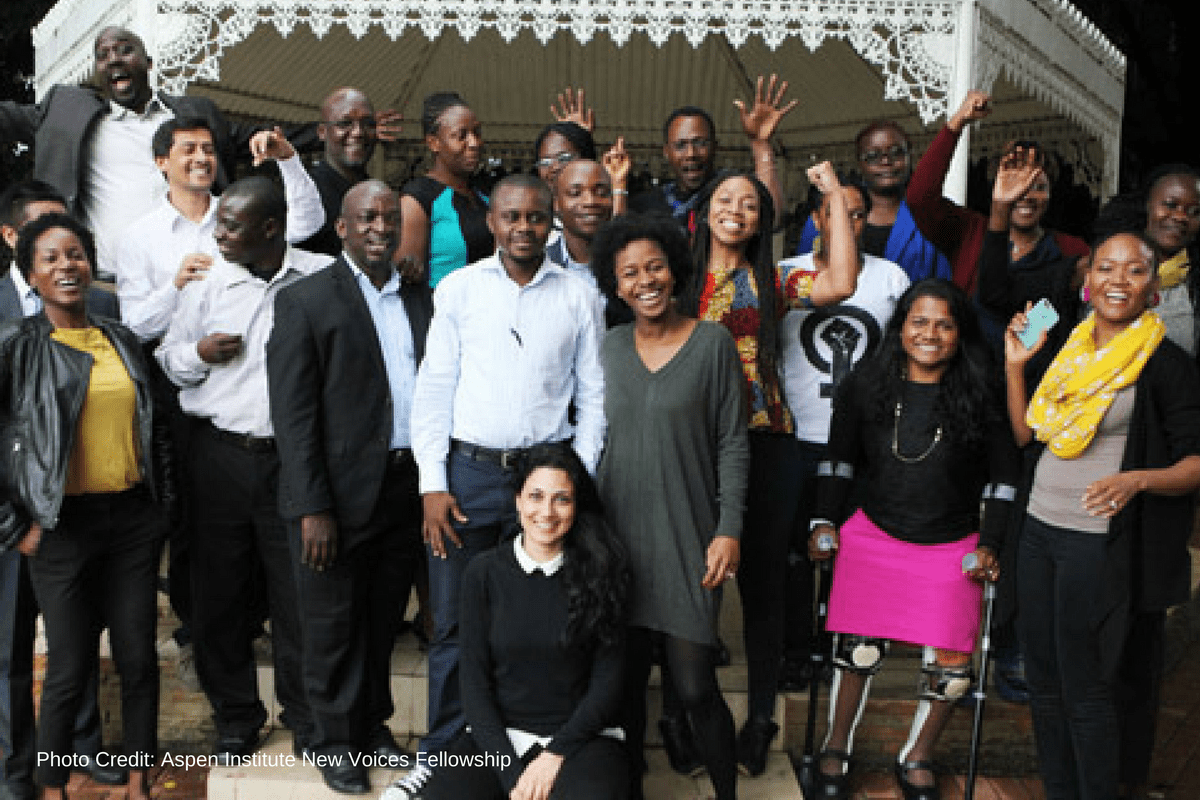Who Shapes the Development Conversation?
By Michelle Geis Wallace, August 25, 2017

Many voices drive the conversation for solutions to reduce poverty, hunger, and disease. But what do those voices have that make them experts on this conversation? Probably many things.
And how often are those experts from the communities and countries they’re discussing? How many of these experts have the personal, lived experience to provide a deeper context to their years of schooling, research and extensive field travel? Not enough.
The Aspen Institute New Voices Fellowship launched in 2013 in an effort to enrich the global development discussion—to bring in more voices from Africa, Asia and parts of Latin America to lend their expertise and on-the-ground solutions to the conversation. The Fellows receive media training as well as support in writing and public speaking. Each Fellow is also paired with a mentor to work with throughout the year. Mentors help their Fellows write and place opinion pieces, prepare for speaking engagements, and capitalize on media opportunities.
I’ve had the opportunity to work with inspiring and dedicated people over the years, including:
- Agricultural economist and seed expert Edward Mabaya (watch his TED talk)
- Gender equality advocate Elsa D’Silva, who founded Safecity (watch her TED talk)
- Nutrition researcher Mercy Lung’aho (watch her tell her story at Aspen Undaunted)
Do you know any experts in global health, food security, development economics, or health and human rights who should be a part of the 2018 class? Nominate them here. Nominations close in mid-October.
And, check out a selection of media successes from some of the 2017 fellows:
- Devex: Addressing the double burden of work for rural women
- Los Angeles Times: Global health efforts are in jeopardy: A polio survivor reflects on proposed cuts to foreign aid
- The Conversation: Africa must reboot its health systems to cope with non-communicable diseases
- STAT News: Mental health should be a priority for WHO’s new director-general
- Al Jazeera: Burning towers and the future of the world’s urban poor
